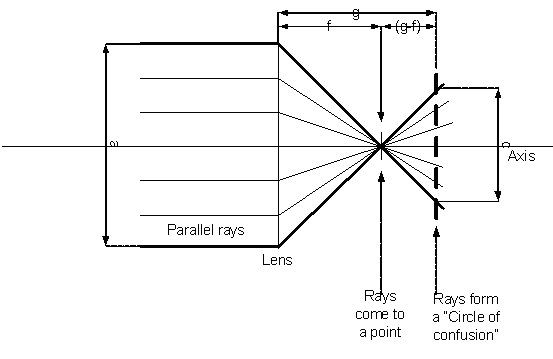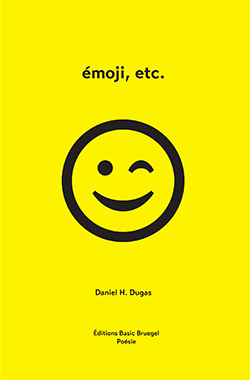Merit, Finance and Depth of Field (2016)
 Keywords: arts, artistic merit, arts boards, money, poverty, fairness
Keywords: arts, artistic merit, arts boards, money, poverty, fairness
The message to the poor and discontented is that they must not impatiently upset or kill the goose that will assuredly, in due course, lay golden eggs also for them. And the message to the rich is that they must be intelligent enough from time to time to help the poor, because this is the way by which they will become richer still.[1] E. F. Schumacher, Small is Beautiful
My hope this year is that something changes. For example, a change in the system that manages arts grants, specifically the criteria for assessing projects. In all the Arts Councils or Arts Boards across the country, and in many parts of the world, there are two rules for evaluating an application. The most important element for this evaluation is the artistic merit of a candidate. This is how jurors decide if someone will get a grant or not. The second rule is that the financial situation of a candidate should not have any influence on the decision. I have always been opposed to this way of assessing applications. I believe that the financial situation of an artist has a direct influence on the artistic merit of that artist. I have stated this for years while participating in both Canada Council for the Arts and New Brunswick Arts Board juries. Every time I have raised the issue, I got the same terse response; that those are the rules, the foundations of the whole thing, period. I believe that laws or rules are not by themselves proofs of fairness and history is full of such examples.
The straw that broke the camel’s back (forcing me to sit down to state this in writing) came a few weeks ago when I read a press release of grants awarded by the one of the provincial Arts Boards in the country. One of the successful candidates is also a full-time professor at a University and the grant will allow this professor to attend an arts residency during a sabbatical. According to the Faculty Bargaining Services, someone making $100,000. a year will make around $88,000. while on sabbatical. I am outraged that someone on a sabbatical, which is a time paid to do one’s work, can apply and get a grant to help do that work. Aren’t the taxpayers on the hook twice for the same thing?
There are people out there who are applying for grants, getting them and they have no financial need for this funding. There are also people who are applying for grants and not getting them and have an urgent need for funding. Books, paintings, sculptures, musical scores and videos are not created because some people are not receiving grants. Some of the available funding is going out to supplement individuals already receiving generous packages. Perhaps there should be a program that would permit people who receive grants recognizing their work excellence, yet don’t need the funding, to put the money back into the system. Perhaps they could then receive commendations for their contribution. If it is accolades that they need, why not create special recognition prizes?
Every time that I am told that the financial situation of an artist has no bearing on an application, I am puzzled. How could money not be a consideration when money is at the core of the whole thing? This is why artists are asking for grants: to get money, to do things. If money doesn’t matter, the federal government would not make equalization payments to less wealthy Canadian provinces to equalize the provinces’ “fiscal capacity”. If money is not important, George Murray, St-John’s poet laureate would not have resigned after budget cuts to the arts and culture sector in Newfoundland [2]. If money is not an issue, why are arts boards paying Hill Strategies to research key statistics about artists and their personal situations as well as their financial impact on the economy? [3] We are all outraged when we hear of CEOs salaries and how many lifetimes it would take for a regular Joe to make that kind of dough. And what the hell happened to the We are the 99% movement?
Every time that I am told that the financial situation of an artist has no bearing on the artistic merit, a shiver runs down my spine. If wealth is not an indicator of well-being, then what is? It is difficult to deny the link between poverty and poor health; it is also difficult to say that the economic well-being of an individual does not affect that person’s life. Who is going to have the better depth of field, the artist with the Canon EOS 1D Mark III priced at $12,000. or the artist with the Kodak FZ41 Digital Point & Shoot Camera at $88.? I agree, the better camera might not yield the better artwork but it allows the artist to have a bigger range of possibilities.
A few countries in the world have established what is called a Day-Fine, a “structured fine payment plan calculated according to a convicted individual’s financial status and the severity of the crime”.[4] The idea is that “if both high-income and low-income population are punished with the same jail time, they should also be punished with a proportionally similar income loss.” [5] If this works for fines, can’t it work for grants?
I am an artist and a writer and I am writing this to say that our model is broken and that it could be fixed but only if we really wanted to do it. I am aware, that this post will not change the world, but I need to say it, I need to feel that I am trying to let some light in.
Daniel H. Dugas, January 6, 2016
During the last few years, Daniel H. Dugas has written a few posts about the arts and the arts management. For more information about Daniel’s writing please visit: http://daniel.basicbruegel.com/texte/
[1] E F Schumacher, Small Is Beautiful: A Study of Economics as if People Mattered, Vintage Books, London, 1993, p.11
[2] St. John’s poet laureate quits over cuts to arts funding
[4] Day Fine Law & Legal Definition
Related links:
Do You Have to Be Rich to Make It as an Artist? (ARTNET)
Daniel H. Dugas
Archives
Blogroll
- A.I.R. Vallauris
- ACAD
- Adobe additional services
- Adobe Creative Cloud
- AIRIE
- Amaas
- Amazon Author Central
- ARTothèque
- Australian Poetry
- Basic Bruegel
- Bitly
- CCCA
- CDBaby
- Cycling 74
- Dissolution
- Éditions Prise de parole
- Emmedia
- eyelevelgallery
- FAVA
- Festival acadien de poésie
- Festival FRYE Festival
- FILE – Electronic Language International Festival
- Freeware list
- Fringe Online
- Galerie Sans Nom
- Gotta Minute Film Festival
- Instants Vidéo
- JUiCYHEADS
- Kindle Direct Publishing
- Klondike Institute of Art and Culture
- La Maison de la poésie de Montréal
- La Maison de la Poésie et de la Langue française Wallonie-Bruxelles
- Laboratorio Arte-Alameda
- Le Centre Jacques Cartier
- Liberated Words
- Maison Internationale de la Poésie – Arthur Haulot
- MediaPackBoard
- Miami Book Fair International
- Monoskop
- Mot Dit
- NSCAD University
- Paved Arts
- PoetryFilm
- Portail des auteurs du Nouveau-Brunswick
- RECF
- Revue Ancrages
- Salon du Livre du Grand Sudbury
- Sculpture Space
- Subtropics.org
- Sydney college for the arts
- The Centre for Contemporary Canadian Art
- The New Gallery
- Trevigliopoesia
- tumbler-documents
- V Tape
- Valerie LeBlanc
- VideoBardo
- Void Network-Κενο Δίκτυο
Categories
- #covidpoèmes
- Advertisement
- AIRIE
- Ancrages
- anthology
- Anthropocene
- Architecture
- Around Osprey
- art
- Article de presse
- arts visuels
- audio
- Australian Poetry
- Basic Bruegel Editions
- Book
- book fair
- Cafe Poet Program
- Ce qu'on emporte avec nous
- Citations gratuites
- Collaboration
- commentaire
- commentary
- Compte rendu
- conférence
- Conservation Foundation of the Gulf Coast
- COVID-19
- Critique littéraire
- culture
- Daniel Dugas
- Design
- Édition Michel-Henri
- Éditions Perce-Neige
- Éloizes
- Emmedia
- emoji etc | émoji etc
- Environnement
- essai
- essay
- Everglades
- Exhibition
- festival
- Festival acadien de poésie
- Festival Frye Festival
- FIPTR
- Flow: Big Waters
- Fundy
- Habitat
- installation
- Instants Vidéo
- interactivity
- journal
- JUiCYHEADS
- Kisii
- L'Esprit du temps
- laptop
- Leaving São Paulo
- lecture
- Livre
- logos
- Magazine
- Miami Book Fair
- Moncton 24
- novel
- OASIS
- oil spill
- perception
- performance
- Photo
- poésie
- Poetic Licence Week
- Poetry
- politics
- politique
- press
- Prise de parole
- Revue Ancrages
- salon du livre
- sculpture
- Sculpture Space
- sound
- Souvenirs
- Spirit of the Time
- Style & Artifacts
- Symposium d'art/nature
- talk
- television
- The New Gallery
- Uncategorized
- Valerie LeBlanc
- vidéo
- vidéopoésie
- Videopoetr/Vidéopoésie
- videopoetry
- visual arts
- What We Take With Us
- youth literature







